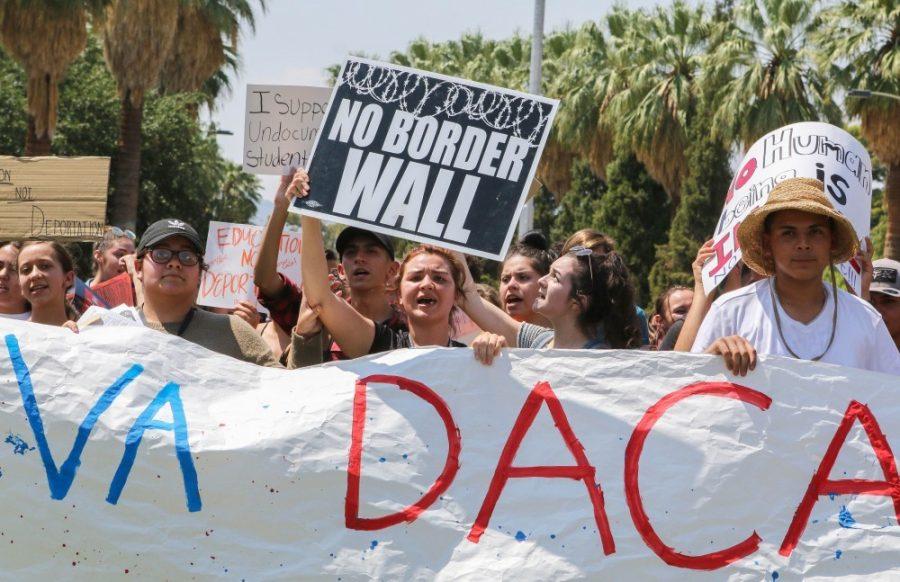Immigration has been a hot topic lately with concerns regarding the status of people who live in the U.S. under DACA (Deferred Action for Childhood Arrivals).
The platform on the right is to clamp down on immigration and paint these undocumented migrants as criminals. The right fires up its base by using vocabulary that dehumanizes and criminalizes these migrants. Undocumented migrants are commonly referred to as illegal immigrants, or even just as illegals.
These names are not used by just one side either. They are used by people who are pro-immigration and anti-immigration alike.
Rhetoric is extremely important when talking about these issues because it can create an inherent bias about how these people are perceived.
Over the summer, I interviewed Chelsea Halstead, deputy director for the Colibrí Center for Human Rights, which is a nonprofit organization based in Tucson that works closely with people who had migrant family members go missing.
I conducted this interview with her for a different project that I worked on with “Thin Air Podcast,” but her insight about immigration rhetoric was something that has stuck with me. This conversation is timely, given all of the recent talk about immigration.
RELATED: Students rally in support of DACA outside regents meeting
When I asked her about how immigration portrayed in the media, she brought up the use of the word “illegal” to describe migrants.
One point she made is there is no other crime in the U.S. people can commit that will get them labeled as illegal. There are actions or things that are described as illegal, but the word illegal is seldom used to describe a person that does something illegal, unless they are an undocumented migrant.
Illegal has become such a common term to describe undocumented immigrants that people often do not realize what they are implying when they say it.
Halstead described it as, “It’s like your very presence defines you.”
When we refer to immigrants as illegals, it distracts from all the other things that define them. Undocumented migrants are more than we give them credit for. They have families, jobs, passions, hobbies and interests.They are more than their citizenship status. They are people, too.
It is true they are entering into this country without their papers, and that could be considered an illegal act. However, by calling them illegals, it is putting them into a box that makes it hard to see anything past the fact that they do not have their papers.
Calling someone undocumented, rather than illegal, makes them seem a lot less dangerous. Calling someone illegal makes it easier for immigration opponents to project the idea that not having their papers isn’t the only crime they are committing.
This notion is further echoed on the right, like when President Donald Trump said, “They’re bringing drugs. They’re bringing crime. They’re rapists.”
When in reality, most migrants are not dangerous criminals. Most of them have good intentions. They are coming here because the situation at home is not good and they are seeking a better life for themselves and their families. Many of them just work and try not to cause any trouble.
The use of the word illegal to label undocumented migrants creates an inherent bias, distilled in the American people, to be weary of people without their papers.
An easy way to minimize this bias is to take the word illegal out of your vocabulary when you are referring to undocumented migrants. Illegal as a name for all undocumented migrants is criminalizing and dehumanizing.
Follow Claudia Drace on Twitter









